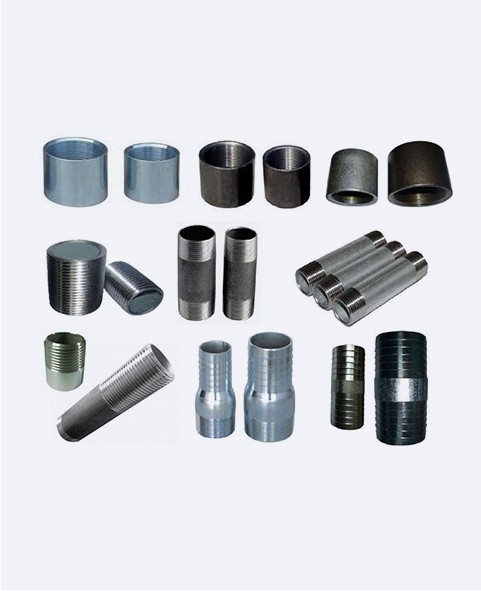-
Cangzhou Yulong Steel Co., Ltd.
-
Phone:
+86 13303177267 -
Email:
admin@ylsteelfittings.com
- English
- Arabic
- Italian
- Spanish
- Portuguese
- German
- kazakh
- Persian
- Greek
- French
- Russian
- Polish
- Thai
- Indonesian
- Vietnamese
- Zulu
- Korean
- Uzbek
- Hindi
- Serbian
- Malay
- Ukrainian
- Gujarati
- Haitian Creole
- hausa
- hawaiian
- Hebrew
- Miao
- Hungarian
- Icelandic
- igbo
- irish
- Japanese
- Javanese
- Kannada
- Khmer
- Rwandese
- Afrikaans
- Albanian
- Amharic
- Armenian
- Azerbaijani
- Basque
- Belarusian
- Bengali
- Bosnian
- Bulgarian
- Catalan
- Cebuano
- China
- China (Taiwan)
- Corsican
- Croatian
- Czech
- Danish
- Esperanto
- Estonian
- Finnish
- Frisian
- Galician
- Georgian
- Kurdish
- Kyrgyz
- Lao
- Latin
- Latvian
- Lithuanian
- Luxembourgish
- Macedonian
- Malgashi
- Malayalam
- Maltese
- Maori
- Marathi
- Mongolian
- Myanmar
- Nepali
- Norwegian
- Norwegian
- Occitan
- Pashto
- Dutch
- Punjabi
- Romanian
- Samoan
- Scottish Gaelic
- Sesotho
- Shona
- Sindhi
- Sinhala
- Slovak
- Slovenian
- Somali
- Sundanese
- Swahili
- Swedish
- Tagalog
- Tajik
- Tamil
- Tatar
- Telugu
- Turkish
- Turkmen
- Urdu
- Uighur
- Welsh
- Bantu
- Yiddish
- Yoruba

Oct . 10, 2024 11:44 Back to list
api 5l psl2
Understanding API 5L PSL2 An Overview
The API 5L standard is an essential guideline developed by the American Petroleum Institute (API) concerning the specification for line pipes. This standard is critical in industries dealing with the transportation of oil and gas, as it ensures that the piping systems employed are capable of handling the specific operational demands. Among various specifications outlined within the API 5L standard, PSL1 and PSL2 (Product Specification Levels) hold significant importance, with PSL2 being the focus of this article.
API 5L PSL2 is a more stringent set of requirements compared to PSL1, designed to meet higher performance criteria. The distinction between PSL1 and PSL2 lies in the characteristics essential for line pipes, such as the mechanical properties, chemical composition, testing methods, and quality assurance. The PSL levels were established to accommodate different service conditions and operational environments, thus ensuring that the materials used are suitable for their intended application.
Understanding API 5L PSL2 An Overview
The chemical composition and mechanical properties of the materials specified under API 5L PSL2 are also more stringent. For instance, PSL2 requires better control over the steel's microstructure, ensuring it has a finer grain size, which enhances its mechanical properties. This control over the manufacturing process yields pipes that can sustain greater stress and resist deformation, which is vital for long-distance transportation of hydrocarbons through pipelines.
api 5l psl2

Moreover, the API 5L PSL2 standard outlines criteria for the testing frequency and methods to be used throughout the manufacturing process. This includes increased requirements for systematic examination during various stages of production to guarantee that any defects can be identified and addressed promptly. Such rigorous quality control ultimately leads to enhanced safety and performance of the pipeline, reducing the risks associated with transportation.
Another significant aspect of API 5L PSL2 is its relevance in the context of environmental protection and sustainability. Given the critical role that pipelines play in the energy sector, the integrity of these lines is paramount. By employing PSL2-compliant pipes, companies can mitigate the risk of leaks and ruptures, thus preventing potential environmental disasters. The stringent standards help ensure that pipelines remain operational under extreme conditions, thereby supporting the safe movement of energy resources while minimizing environmental impact.
Furthermore, API 5L PSL2 pipes are required to be manufactured from high-quality steel, with specific allowances for certain elements to ensure optimal performance. These specifications are vital to ensure resilience against corrosive environments and external stresses. The focus on high-quality alloys means that industries can rely on these pipes to perform consistently over time, reducing the likelihood of failures that can lead to costly repairs and downtime.
In conclusion, the API 5L PSL2 standard is a crucial benchmark for the manufacturing of line pipes used in the oil and gas industry. Its stringent requirements regarding mechanical properties, chemical composition, and rigorous testing ensure that the pipes can withstand demanding operational conditions while maintaining safety and performance. As the global energy sector continues to evolve towards more sustainable practices, compliance with standards like API 5L PSL2 becomes increasingly important in balancing operational efficiency with environmental responsibility.
Latest news
-
ANSI 150P SS304 SO FLANGE
NewsFeb.14,2025
-
ASTM A333GR6 STEEL PIPE
NewsJan.20,2025
-
ANSI B16.5 WELDING NECK FLANGE
NewsJan.15,2026
-
ANSI B16.5 SLIP-ON FLANGE
NewsApr.19,2024
-
SABS 1123 FLANGE
NewsJan.15,2025
-
DIN86044 PLATE FLANGE
NewsApr.19,2024
-
DIN2527 BLIND FLANGE
NewsApr.12,2024
-
JIS B2311 Butt-Welding Fittings LR/SR 45°/90° /180°Seamless/Weld
NewsApr.23,2024











